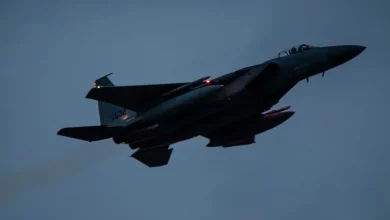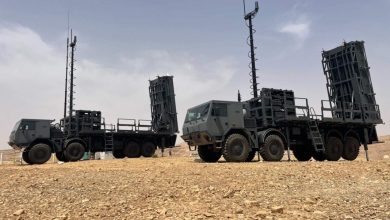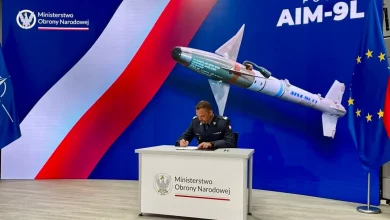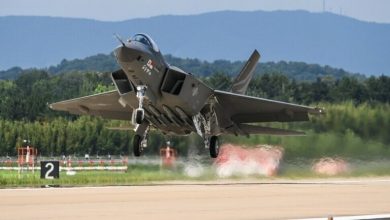21 Greek islands with non-military status armed since 1960s
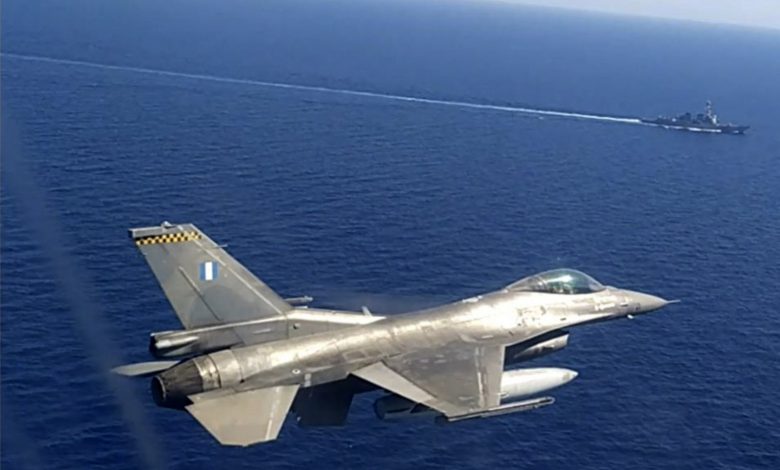
While Turkey once again proved its determination to protect its rights in the Aegean Sea with President Recep Tayyip Erdoğan’s recent statements, Greece has continued its provocative moves by violating international agreements on the status of islands in the region by arming a total of 21 islands with non-military status since the 1960s.
Erdoğan on Thursday warned Greece to demilitarize islands in the Aegean Sea, saying he was “not joking” and posted tweets in Greek and English, in a marked harshening of rhetoric against Turkey’s neighbor and historic regional rival.
“We expect Greece to stop arming the islands that have non-military status and to act in accordance with international agreements,“ Erdoğan said on the final day of military exercises taking place near Izmir, on Turkey’s Aegean coast. “I’m not joking, I’m speaking seriously. This nation is determined.”
Turkey says Greece has been building a military presence in violation of treaties that guarantee the unarmed status of the Aegean islands. It argues the islands were ceded to Greece on the condition they remained demilitarized.
Athens counters that the islands, which have been garrisoned for decades and lie within close striking distance of a large Turkish landing fleet, can’t be left undefended.
Starting from the Treaty of London in 1913, the militarization of the eastern Aegean islands was restricted and their demilitarized status was confirmed with the signing of the Treaty of Lausanne in 1923. The Lausanne pact established a political balance between the two countries by harmonizing vital interests, including those in the Aegean. The 1947 Treaty of Paris, which ceded the Dodecanese islands from Italy to Greece, also confirmed their demilitarized status.
Since the 1960s, 21 of the 23 islands with non-military status have been armed by Greece. Among the armed islands are Crete, Lemnos, Chios, Samos, Kos, Rhodes and Lesbos. Determined not to compromise its rights and interests, Ankara says it will maintain its stance on the agenda by drawing attention to the fact that the islands, which should have non-military status, have been armed.
Besides the Lausanne and Paris agreements, Greece is acting against international law by keeping armed forces in the eastern Aegean islands, including the six-state decisions of 1914 and another agreement signed in 1932.
Turkey has informed the United Nations that the status of the armed islands has been violated in two letters, the last of which was sent last month. In the letters, it was emphasized that the violations committed by Greece affected the peace in the region.
Despite Ankara’s objections, Greece has continued its violations on the islands with non-military status with military vessels and aircraft, committing 953 violations this year.
Continuing to violate international law with 73 visits to the aforementioned islands, 24 of which were visited by the deputy minister of defense, Greece carried out nearly 2,500 violations against the islands with non-military status in 2021 with military sea and air vehicles.
The two NATO allies are at odds over a number of issues, including competing claims over jurisdiction in the Eastern Mediterranean, overlapping claims over their continental shelves, maritime boundaries, air space, energy, the ethnically split island of Cyprus, the status of the islands in the Aegean Sea and migrants.
The two countries came close to war three times in the past half-century, the last being in 1996 over ownership of an uninhabited eastern Aegean islet. But Ankara has recently been questioning Greece’s sovereignty over large, inhabited Greek islands – with Rhodes, Kos and Lesbos, for example, meeting the description of “militarized” islands.
“We warn Greece to stay away from dreams, statements and actions that will lead to regret, as it did a century ago, and to return to its senses,” Erdoğan also said, referring to Turkey’s defeat of Greece after a three-year war that saw Greek armies invade western Turkey a hundred years ago.
Later Thursday, Erdoğan made the rare move of tweeting in Greek and English, saying: “As Turkey will not resign its rights in the Aegean, it will not hesitate either to make use of its rights arising from international treaties on the issue of the islands’ demilitarization.”
Greece maintains Turkey has deliberately misinterpreted the treaties and says it has legal grounds to defend itself following hostile actions by Ankara. Greek government spokesperson Giannis Oikonomou commented that Erdoğan’s choice of Greek was “notable.”
“Greek is known as the language of reason, freedom and justice,” he said. “The tactics Turkey has chosen do not fall under any of these categories.”
Turkey will no longer hold high-level talks with neighboring Greece, Erdoğan said last week amid rising tensions between the traditional rivals. Last year, after a five-year hiatus, the two NATO members resumed talks to address their differences over a range of bilateral issues such as mineral exploration in the Eastern Mediterranean and rival claims in the Aegean Sea. The talks have made little progress and the countries have frequently traded barbs. Erdoğan said Turkey had canceled a bilateral cooperation platform, dubbed the High-Level Strategic Council, with Greece.
Turkish leaders have repeatedly stressed that Ankara favors resolving outstanding problems in the region through international law, good neighborly relations, dialogue and negotiations. Instead of opting to solve problems with Ankara through dialogue, Athens has, on several occasions, refused to sit at the negotiation table and opted to rally Brussels to take a tougher stance against Turkey.


